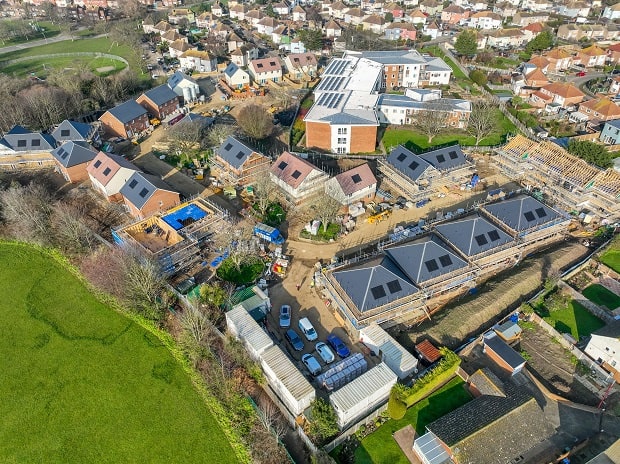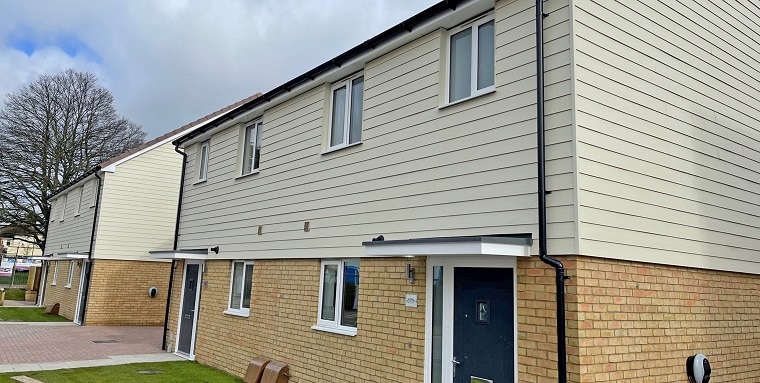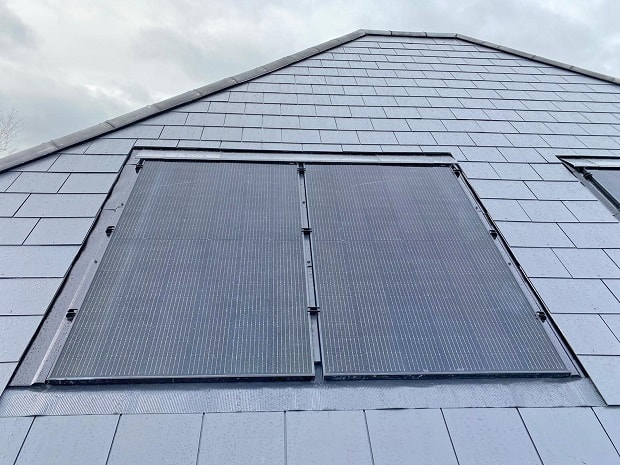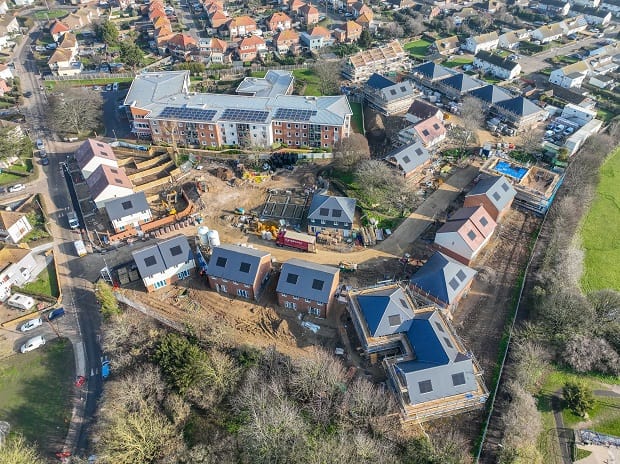
An affordable housing scheme in Ramsgate, designed and built by contractor WW Martin in partnership with Orbit Homes, has been recognised in a new national environmental accreditation award.
The development, on the former Newington Infants School site on Melbourne Avenue, has been awarded a Green Plaque after it was judged to have achieved very high standards in sustainable design and construction practices.
The award aims to encourage recognition of environmental good practice by the nation’s builders.
Poppy Fields in Ramsgate is a 100% affordable scheme, with 55 one, two, three and four-bedroom houses and a selection of apartments. The development provides 16 shared ownership and 39 social rent homes.
Shared ownership homes consist of three and four-bedroom houses priced between £140,000 to £176,000 for a 40% share. Orbit Homes will manage all the properties on the site once the construction phase is complete.

All the units are built to sustainability standards with excellent marks under the EPC (Energy Performance Certificate) rating.
The carbon emissions ratings assessments show the build process will reduce CO2 levels by some 23.12% below those of comparable new build properties.
Renewable energy is a key element of the development. Solar photovoltaic panels have been integrated into each home’s roof design, saving homeowners money on their utility bills, with any surplus energy directed back to the National Grid.
WW Martin also worked with local biodiversity professionals to ensure ecological enhancements were incorporated into the scheme.
The scheme has attenuation systems and natural infiltration for all surface water on the site.
Its drainage design allows all surface water to pass cleaned and filtered into the natural water course, diverting it away from treatment and pumping stations, helping to reduce the risk of wastewater release into the sea and rivers.

This is the first new build construction project to be awarded a Green Plaque, acknowledging the hard work of Thanet company WW Martin.
Peter Batt, of the Green Plaque, said: “It’s not often that we get to hear of, let alone celebrate the outstanding work that some of our developers and housebuilders are doing to minimise their schemes’ environmental footprint. That’s why we’ve launched the Green Plaque, and WW Martin deserves credit for the thought and commitment they have put into this scheme.
“We want to highlight more developments like this because they light the path that others must follow, especially if we are to rise to the environmental challenges we face.”
WW Martin director David Barker added: “To receive independent accreditation that recognises our approach to delivering highly sustainable new homes, in partnership with Orbit Homes, is testament to the hard work of everyone involved.
“We are very much committed to best practice and are delighted that the sustainability initiatives and work undertaken on this project have resulted in a national environmental accreditation award.”

The school site closed in 2007 after a move to a new combined primary premises off Princess Margaret Avenue.
In 2016, Copperfields extra care housing opened on part of the site and the remainder was then put on the market by Kent County Council.
The Green Plaque is a new environmental assessment and award, which sets out to identify and highlight the good things that construction companies, their clients and developers are doing to reduce their projects’ environmental impact.
The WW Martin / Orbit Homes development was assessed by Andrew Pook for the Green Plaque Newbuild award. Find the case study at: Melbourne Avenue Green Plaque case study
Help us to continue bringing you Thanet news with a donation towards our running costs https://www.paypal.com/donate/?hosted_button_id=YF7BH2EF4UG2N

